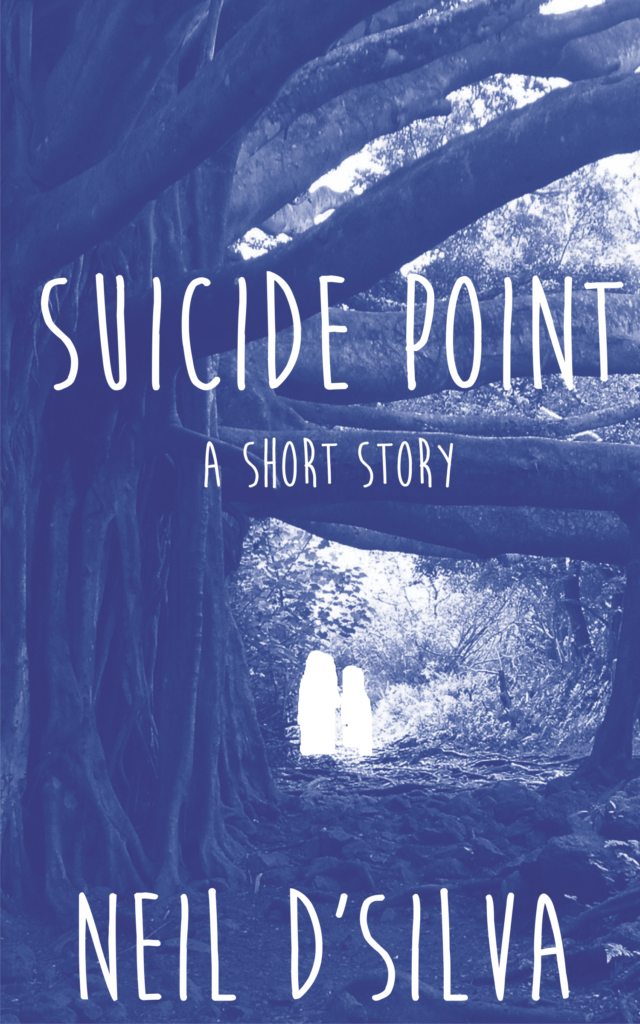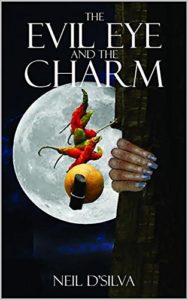 My earliest memory of Grandma Grace is of her holding me as an infant in her arms; my tiny head nestled in her palm, and her slightly myopic eyes smiling down at me. She must have surely told me something then, something like, “W’at a wonderful boy ’e is! Let’s name him Immanuel.” It sounds about right, with that dropped ‘h’ thing she does, but I do not remember exactly now. You must forgive me these little lapses, for I am all of ten years old, and ten years is a long time to remember all these details.
My earliest memory of Grandma Grace is of her holding me as an infant in her arms; my tiny head nestled in her palm, and her slightly myopic eyes smiling down at me. She must have surely told me something then, something like, “W’at a wonderful boy ’e is! Let’s name him Immanuel.” It sounds about right, with that dropped ‘h’ thing she does, but I do not remember exactly now. You must forgive me these little lapses, for I am all of ten years old, and ten years is a long time to remember all these details.
But one thing is for sure—the first touch I ever had in this world and the first words I ever heard belonged to my Grandma. I know that for sure because she herself has told me this several times, and Grandma Grace can be many things but she can never be wrong.
My mother did not want me to happen. I can understand these things now, and Grandma has told me, on one of those long dreary nights when the wild dogs come out, that my mother had decided not to have me. Give me back to Jesus, as she puts it. But Grandma convinced her, and here I am. And good things did happen. My birth probably caused the change in my father’s heart that made him marry my mother. So, in a way, my entire family is because of Grandma Grace—the woman who cannot see what is right in front of her, but can see years into the future with the accuracy of an eagle swooping upon its prey.
Yes, Grandma Grace is a strange woman. I have seen her in so many forms that I am sure her true form is buried somewhere in that clump of cashew trees that’s in our backyard. That’s where we buried Timothy, my Labrador, who used to protect our house. That was when I saw Grandma at her saddest. As she dug up the little grave and buried Old Tim, she mumbled a prayer too, and told me to put a handful of dust on his fallen body. Later, she told me she was sad because I was sad, and that made me want to forget Old Tim.
I have seen her angry too, especially when she is standing up to Eddie, my dad. I don’t like it either, when Eddie comes home drunk and tries to act funny with me. One night, when his breath stank of cheap liquor, he hoisted me on his shoulders and danced in the middle of the room. I protested and screamed, but he continued dancing to Ya Ya Mayaya, till he moved too close to the wall and banged my head on it. I couldn’t stop bawling throughout that night, but even that could not drown the angry tirade that Grandma Grace had unleashed on him.
I have seen her brave. Whether it is stomping cockroaches that enter our bathroom almost every evening to chopping off the heads of chickens for our Sunday meals, she does not as much as flinch. There are tales of her husband having died in the middle of the night long ago of some sickness. Back then, she lived in a little hut outside our village. In that desolate area, there was no one she could contact or nowhere she could go to. Without any alternative, Grandma stayed in the hut with his dead body till the morning, even sleeping on the same bed as him. That’s how she is, my Grandma Grace.
I have seen her sick. Oh, that I have seen a lot! She keeps growing sicker nowadays. When I asked her once, she told me her age is eighty-one and I suddenly realized that day that her hair had all gone grey. And what happened to her teeth, the ones that formed the first ever smile I saw in this world? She does not know her ailment though. My parents do not bother to take her to the doctor much. I called Dr. Fernandes once, and he said it was old age and nothing could be done about it. After he left, Grandma Grace took me close to her and told me not to miss her if she went away. She’d go to Jesus and be with Old Tim. She’d be fine.
And I have seen her frightened—stark, white with fear.
That happened three days ago.
***
When Alberto came into our little Goan village of Antolina and joined the choir of our St. Benedict Church, there was something for everyone to talk about. Alberto with his Hawaiian shirts and flannel pants was unmistakable at Sunday Mass. Soon enough, the attendance at Mass shot up. Whether he sang Here I Am, Lord or In His Time, people exulted with him and felt God had come into their hearts. The priest’s sermon had little meaning or effect over Alberto’s singing, and it was no surprise that the Mass itself became one huge Alberto performance rather than a celebration of the Holy Eucharist.
It was no surprise that among the attendees, the women outnumbered the men. And among those women was my mother, Betty. Even I could not mistake the transformation in her. Over the weeks, her ‘Sunday best’ became better and better—she bought clothes from Panjim and ornaments from Anjuna and shoes from Mapusa. She changed the place she sat at for Mass, coming ahead a pew or two every subsequent Sunday, till she was finally on the very first pew for a complete ringside view of Alberto’s performance.
It did not take long for Alberto to take notice of her. Between his highly musical renditions of Alleluia, their eyes met, and locked.
How do I know all of this? Because I sat right next to my mother, week after week, and it did not take me long to understand what was going on. I am a ten-year-old, but a very intelligent ten-year-old. I have no illusions about that.
That was when the fights began.
When Eddie came to know of the real reason why my mother had turned a Mass regular, he fumed. He opened his bottles right inside the house, and yelled all over the place, especially at my mother.
“You two-penny whore!” he shouted seven days ago. “You think I do not know what’s going on between that pansy-ass and you? You have made a laughingstock of me in the village. Where I go, people laugh behind my back. That halkat, that Rodrigues, he tells me to stay more at home. Who gives that lowly bartender to speak to me like that? You! That’s who.”
My mother said nothing. She tried to go back into the room.
“Stop here this instant!” Eddie shouted at her. “What do you think? Going away is going to solve this? Tell me, what are you doing with him? Are you sleeping with him?”
I was hiding behind the door, my one eye barely able to see what was going on in there. But even from that position, I could see the expressions on my mother’s face change. It was like some veneer had peeled off and the ugly interior was exposed.
“Yes, I am. So?”
It was a horrid voice. An ugly horrid voice. I did not like my mother like that.
“You bitch! You—” Eddie could not control himself now. He stumbled against the squat coffee-table and his Royal Stag quarter bottle fell down, the whiskey inside it gushing to the floor. “What do you not get from me, you whore? You want more? Come inside, and I will give it to you.”
“Learn to control yourself first, you pig-ass!” said my mother.
I had heard it often, the way these two called each other names. Even the names were standard by now. I knew them all, but every time a new one came up.
“I will kill that bewarshi!” Eddie screamed at the top of his lungs. “And then I will kill you. And then I will kill that little bastard you have hung around my neck.”
I felt a chill run down my spine as I heard that. It wasn’t unexpected though. I figured in all their arguments nowadays. If his shirts weren’t ironed, I was a bastard. If the fish curry had less tamarind, I was a bastard.
At that moment, I heard Grandma Grace coming down the stairs behind me. The noise might have dragged her out of bed. She whispered to me to move away, but I wanted to hear more. I pushed her back.
“You dare talk about Immanuel?” said my mother. I could only see her back now but I could perfectly picture the expressions on her face. “You think I hung him around your neck? You fucker, it is you. It is you who stuck him around my neck like a… like a grinding stone.”
Grandma was now horrified. Even I was, from whatever I could understand of it. She placed a hand on my shoulder and tried to drag me away, but I stayed put.
Eddie laughed his evil stinking laugh. “Look at this mother, people of the world! A mother who thinks her son is a grinding stone! She thinks he is a burden, and why not? How can she sleep around so freely with him around?” And then the color of his face changed again. “I don’t give a fuck about your son. But you bitch, you slut, you go behind my back with that man? You want to divorce me so that you can shame me? No! That is not going to happen. I will put an end to this. Right here, right now—”
What happened next took only a moment but it seemed like time had stopped. Three pairs of horrified eyes looked as Eddie stumbled to the mantelpiece and pulled out his hunting rifle.
He hadn’t touched that rifle since years, but I remember him having told me once long ago, in a much happier time, that it still had one bullet left in it.
And that was when I saw my Grandma Grace the most horrified. There was pure terror on her face, like her world was going to collapse around her. I just could not take that look anymore and I looked back into the room.
Eddie’s finger was on the trigger, and my mother seemed frozen to the ground. Before any of us could make a move, he had pressed the trigger, and a shot rang out.
And I became deaf.
A few seconds later, after the smoke cleared, I saw the hazy figure of my mother now trying to wrest the infernal rifle from my father’s hands. There were words—angry thoughtless words—but she was unhurt. That was all that mattered.
I felt Grandma’s voice falling on my back. “My boy! I ’ave nothing left ’ere anymore. I cry for you. I cry.”
Then something came over her. She ran into the room and stood right in between the two angrily fighting people. I moved a few steps ahead, but desisted. I knew Grandma would put a stop to this.
“Stop, you fools!” she said. “Stop!”
But her very presence seemed to turn Eddie wild. “Come, come, you come too, mother of the bitch! See what your daughter says! Am I a fool to give food and shelter to all of you? This woman who does not respect me one bit—why should I take care of you?”
“Go away, mai!” said my mother. “Why do you come between us?”
This stunned Grandma. She could suffer violence, but words! For a woman who had lived her life with fearlessness and pride, insulting words were more hurtful than violence.
“I will go,” said my Grandma. “T’is very moment, I will go. I ’ave my ’usband’s ’ouse. I will go dere.”
“Go wherever you want, bitch,” said Eddie. “Who cares?”
Grandma Grace turned and left the room. She crossed me in the corridor and then went back up the stairs. I followed her and saw her getting her large worn-out brown suitcase, the one that she had come to this house in. Then I saw something that made me numb, number than I was then—tears. In all my days with her, I had never seen Grandma tearing up. And it was too much to take.
Little did I know then that Grandma’s tears weren’t going to go away anytime soon.
The next memory I have is of Grandma lugging that suitcase down the stairs and hobbling out of the house. There were no goodbyes, no turning back, just the soft thudding sounds made by the suitcase as it dragged along the floor.
Then there was a sound. From my father. “Hey woman! What are you taking away from my house?”
Grandma kept walking without turning back. But the man, drunk with liquor and his power over the weaker people in the house, lunged forward and tried to pry open her fingers that held the handle of the suitcase.
“Is mine! Is mine! All mine!” she shouted and protested, and those words seared into my memory. Her words were all a garble now, a spouting of emotions rather than any comprehensible expression of language. This was the beginning of the end of my Grandma. Only, I did not know it then.
“Let her go!” my mother hollered. “At least let her go!” And then slumped by the wall of the house and wept in a loud hollow voice.
Perhaps the sudden burst of emotions unnerved Eddie. He retreated, and I saw Grandma’s hunchbacked figure—when had she become a hunchback?—stealing away into the darkness of the dog-infested night.
Continue to Part 2 of this story.










